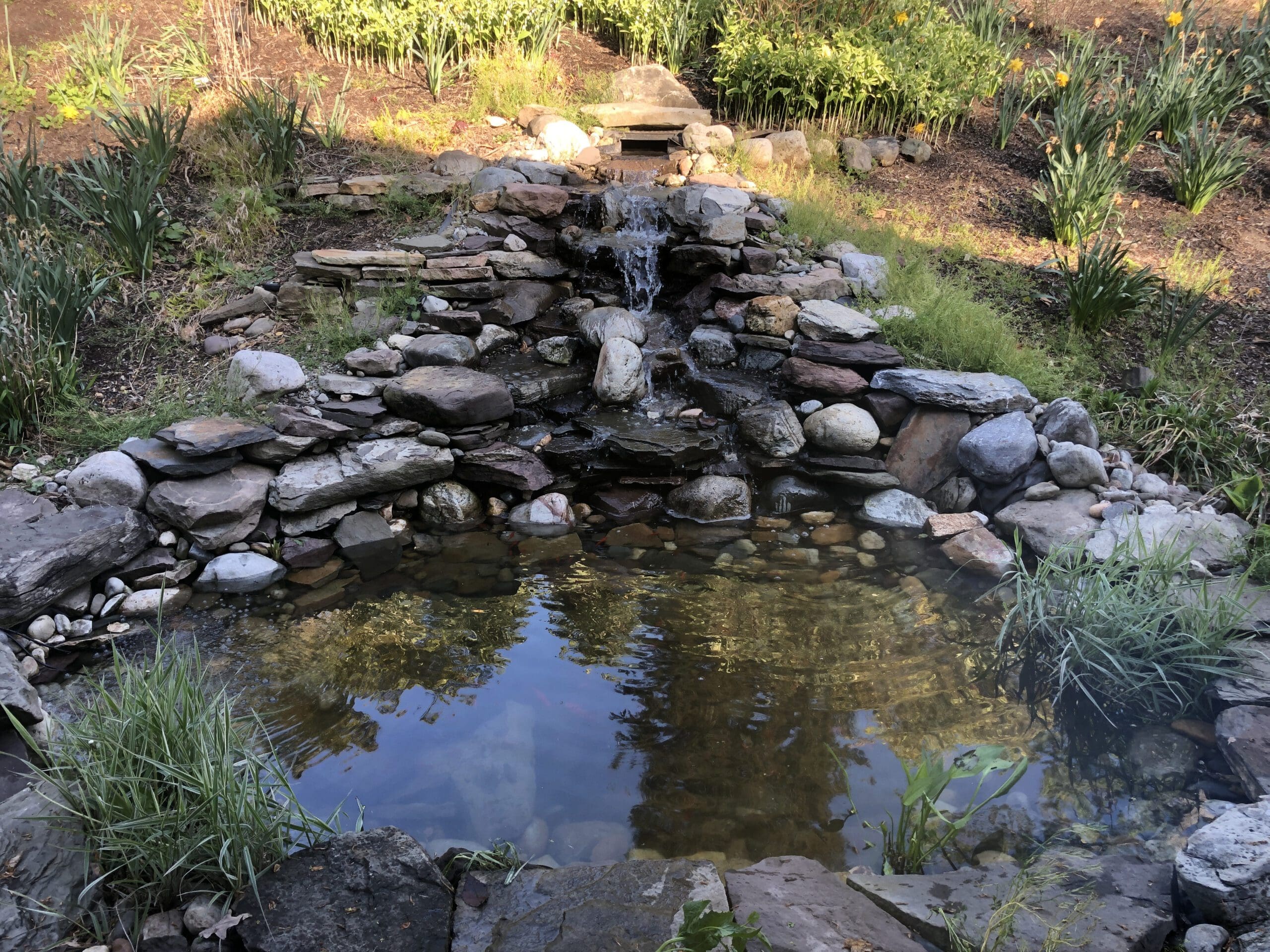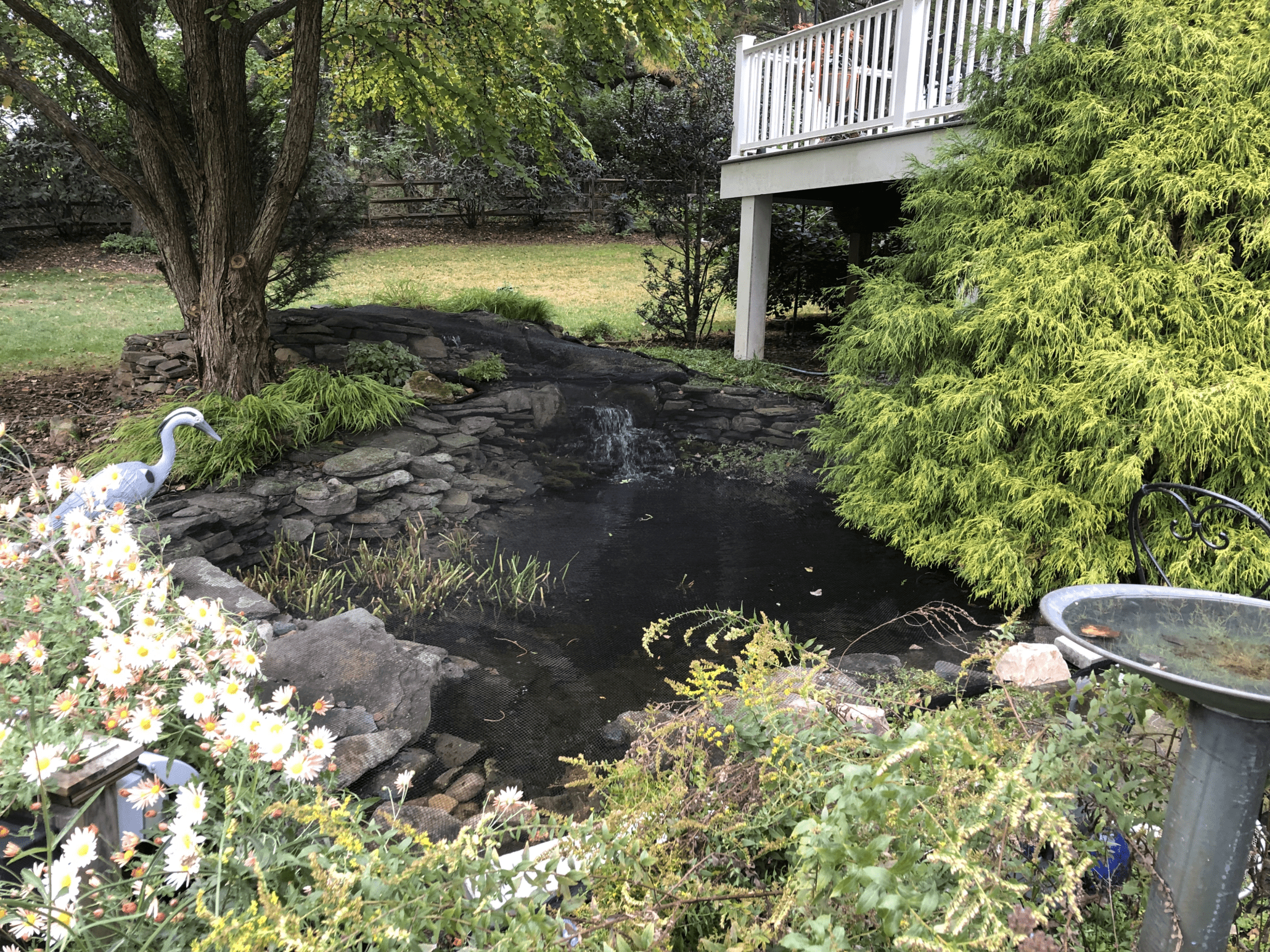What do pond fish do in the winter?
It’s the question we get asked the most, so here are some answers:
The warm weather is obviously the best time to be able to enjoy pond fish. During this time pond fish and koi are active, lively, and highly visible. Many pond fish and koi become downright interactive with their keepers and will follow them around the pond, stick their faces out of the water or practically climb out of the pond to celebrate feeding time.
During this time we all know exactly what is going on with our fish and all it takes is a quick peek into the pond.
Then the cold weather sets in and we slowly lose our ability to see what’s happening with our pond fish. Their activity slows down, they tend to keep themselves concealed, and once the ice and snow come; well, we lose touch with our fish. So what’s going on underneath those layers of ice and snow? What do pond fish do in the winter?
So what are the fish up to?
In short, not too much. But pond fish not being up to too much is an interesting behavior all the same, given that they are so lively throughout the rest of the year. Koi and pond fish are poikilothermic animals, a fancy way of saying cold-blooded.
This basically means that their body temperature is regulated by the surrounding temperature of the water, and their body functions respond and change according to the water temperature. The activity and metabolism of koi and pond fish is greatly reduced which is why they do not feed during the cold periods.
What do pond fish do in the winter? For the most part they sit on the bottom of the pond in the “warmest” pocket of water they can find. During winter months the warmer water is on the bottom of the pond as opposed to warmer months when the warmer water is at the top of the pond!
Fish Hibernation
What do pond fish do in the winter? Koi and other pond fish go into a state of torpor. Torpor is not quite full hibernation, because it is of a shorter duration than hibernation, but otherwise it is a very similar state of being: reduced body temperature, slowed metabolism, slow reaction times, reduced breathing rate and primary body functions.
Torpor allows the animal to save the energy that would otherwise be needed for higher levels of activity. Because of the state of being in torpor it is a very good idea to keep things as calm as possible around the pond. If you need to open the ice in the pond find a quiet way to do it like using boiling water to open a hole, don’t chop it open with a pick ax!
Even using a hand held drill with a hole saw is actually pretty quiet compared to other methods, and if the ice is too thick to open with boiling water the hole saw is a great tool to have. To maintain an open area in the ice try using a floating de-icer or an aerator. This open area in the ice will allow noxious gases, like ammonia, to escape from the pond.
Contact us for more information or to get a de-icer for your pond.






